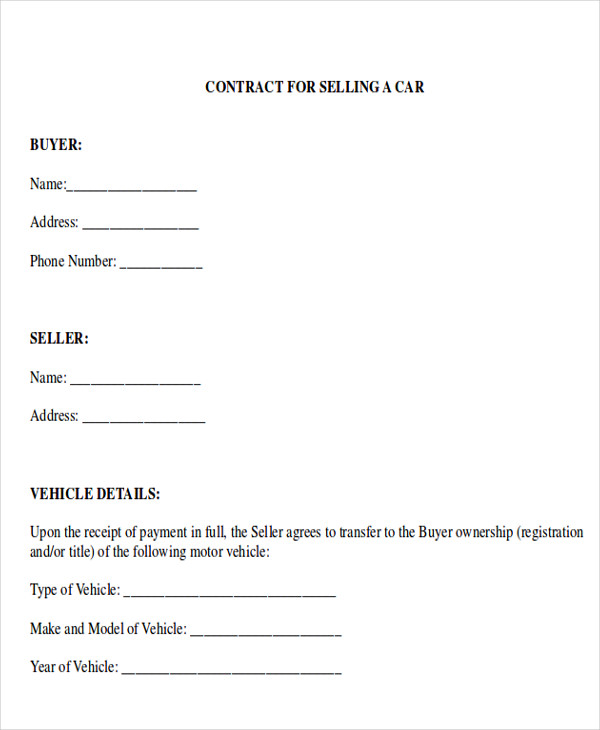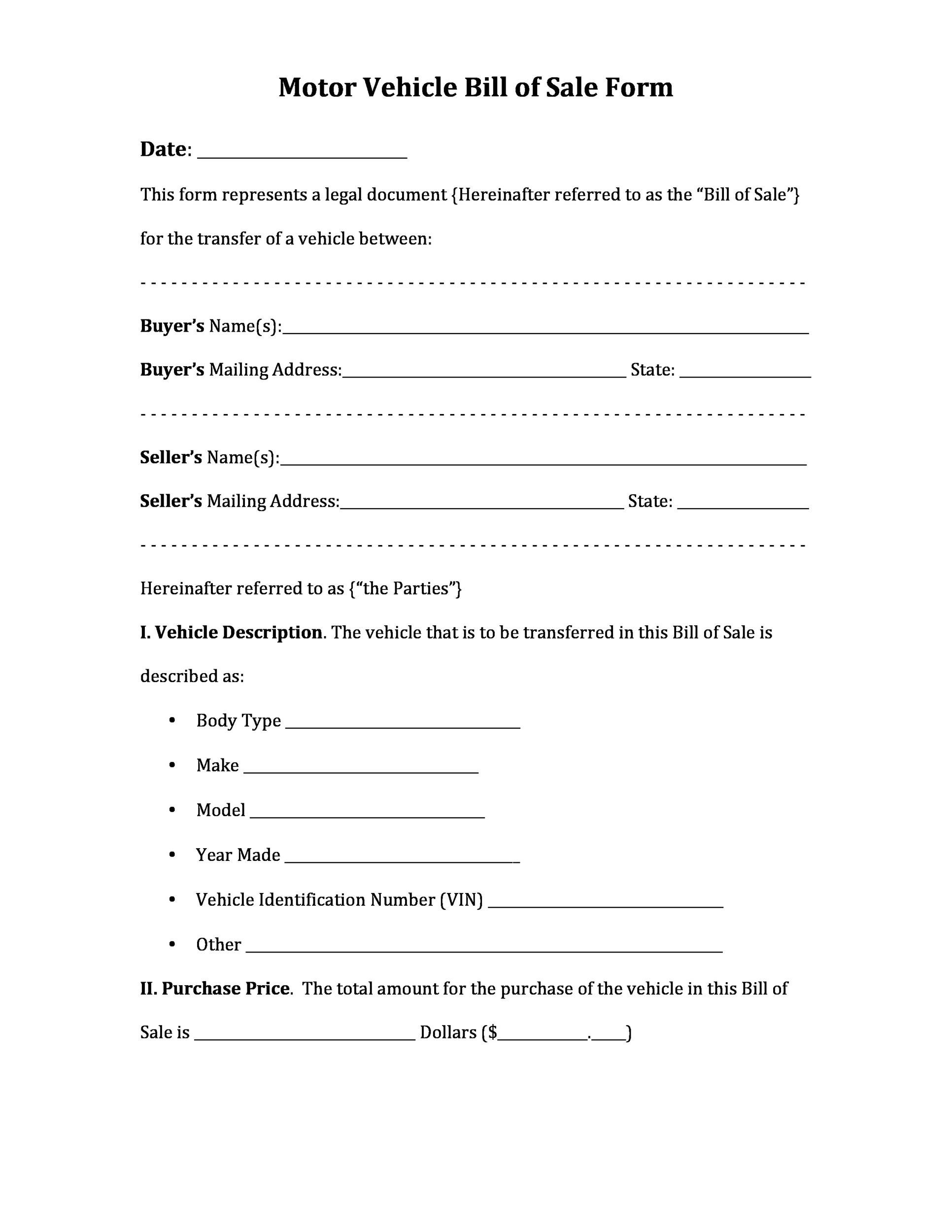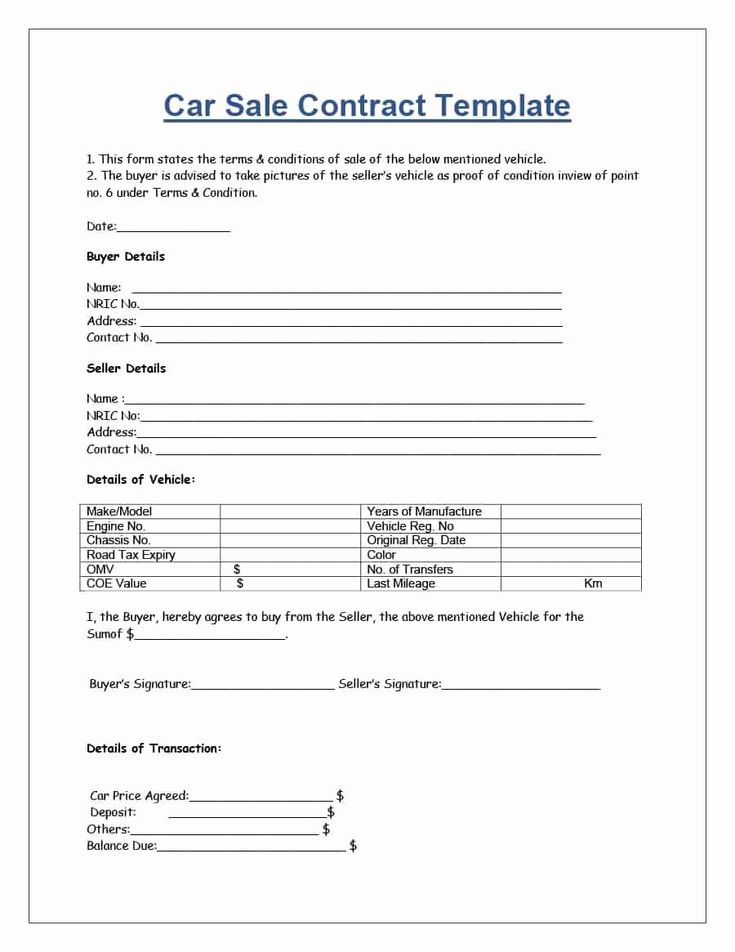A private car sales agreement is a legal document that outlines the terms and conditions of a private car sale. It is a contract between the buyer and the seller, detailing important information such as the vehicle details, purchase price, payment terms, and any additional conditions. This agreement is crucial in protecting the rights and interests of both parties involved in the transaction.
Why Do You Need a Private Car Sales Agreement?
When buying or selling a car privately, it is essential to have a written agreement in place. Here are a few reasons why a private car sales agreement is necessary:
- Legal Protection: A written agreement can protect both the buyer and the seller from any potential disputes or issues that may arise during or after the sale.
- Clarity and Transparency: The agreement clearly outlines the terms and conditions of the sale, ensuring that both parties are on the same page and understand their obligations.
- Proof of Sale: The agreement serves as proof of the transaction, providing documentation that can be used for various purposes such as insurance, registration, and tax purposes.
- Peace of Mind: Having a formal agreement in place gives both the buyer and the seller peace of mind, knowing that their rights and interests are protected.
What Should a Private Car Sales Agreement Include?
When creating a private car sales agreement, it is important to include the following key details:
- Buyer and Seller Information: Include the full names, addresses, and contact information of both the buyer and the seller.
- Vehicle Details: Provide a detailed description of the vehicle, including the make, model, year, VIN, mileage, and any other relevant information.
- Purchase Price: Clearly state the agreed-upon purchase price of the vehicle.
- Payment Terms: Specify the payment method, whether it is cash, check, or bank transfer, and outline any payment deadlines or installment plans.
- Conditions of Sale: Include any conditions or obligations that both parties must fulfill, such as obtaining a valid roadworthy certificate or transferring the vehicle’s registration.
- Warranties and Guarantees: Specify any warranties or guarantees provided by the seller, such as a warranty for the engine or a guarantee of the vehicle’s condition.
- Liability and Indemnity: Clearly state the responsibilities and liabilities of both the buyer and the seller, including any indemnity clauses.
- Date and Signatures: Include the date of the agreement and provide space for both the buyer and the seller to sign and date the document.




How to Create a Private Car Sales Agreement
Creating a private car sales agreement is a relatively straightforward process. Here’s a step-by-step guide to help you create your own:
1. Gather Information
Collect all the necessary information, including the buyer and seller details, vehicle information, purchase price, and payment terms.
2. Use a Template or Create a Document
You can use a pre-made template or create a document from scratch. Ensure that the document includes all the necessary sections and details mentioned earlier.
3. Draft the Agreement
Write a draft of the agreement using clear and concise language. Be specific and include all the relevant information.
4. Review and Edit
Review the draft carefully, making sure that all the details are accurate and that there are no errors or inconsistencies. Edit the document as needed.
5. Seek Legal Advice
If you are unsure about any legal aspects of the agreement, it is advisable to seek legal advice to ensure that the agreement is legally binding and enforceable.
6. Sign and Date the Agreement
Once you are satisfied with the final version of the agreement, both the buyer and the seller should sign and date the document. Keep copies for your records.
Tips for a Successful Private Car Sale
- Advertise Effectively: Use online platforms, social media, and local classifieds to reach potential buyers.
- Set a Fair Price: Research the market value of similar vehicles to ensure you are pricing your car competitively.
- Prepare the Vehicle: Clean the car thoroughly, address any minor repairs or maintenance issues, and gather all necessary documentation.
- Be Honest and Transparent: Disclose any known issues or defects with the vehicle to avoid potential legal issues.
- Arrange Test Drives: Allow potential buyers to test drive the car, but ensure you accompany them for safety reasons.
- Negotiate Wisely: Be open to negotiations but be firm on your bottom line.
- Complete the Paperwork: Ensure that all necessary paperwork is completed accurately and promptly.
- Transfer Ownership: Assist the buyer in transferring the vehicle’s ownership and provide any necessary documents.
Final Words
A private car sales agreement is a vital document that protects both the buyer and the seller in a private car sale. By clearly outlining the terms and conditions of the transaction, this agreement ensures transparency, clarity, and legal protection. When creating a private car sales agreement, be sure to include all the necessary details and seek legal advice if needed. With a well-crafted agreement in place, you can proceed with confidence in your private car sale.
Private Car Sales Agreement Template Word – Download
